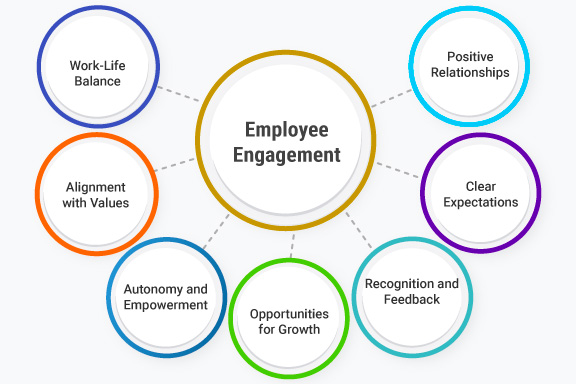In the vibrant business environment of the GCC (Gulf Cooperation Council) countries, employee engagement plays a pivotal role in driving organizational success and fostering a culture of innovation and growth. With diverse cultures, rapid economic development, and evolving workforce dynamics, organizations in the GCC face unique challenges and opportunities when it comes to engaging their employees. In this blog, we’ll delve into the importance of employee engagement in the GCC countries, explore the factors influencing engagement levels, and discuss effective strategies for enhancing engagement across the region.
Why Employee Engagement Matters in GCC Countries:
- Productivity and Performance: Engaged employees are more motivated, committed, and productive, leading to improved organizational performance and competitiveness in the GCC market.
- Retention and Talent Attraction: High levels of employee engagement contribute to higher retention rates and make organizations more attractive to top talent seeking opportunities in the dynamic GCC job market.
- Innovation and Creativity: Engaged employees are more likely to contribute innovative ideas and solutions, driving continuous improvement and fueling innovation in organizations across the GCC.
- Customer Satisfaction: Engaged employees deliver superior customer service, leading to increased customer satisfaction and loyalty, which are vital for business success in the competitive GCC market.
- Organizational Resilience: In the face of rapid changes and uncertainties, engaged employees are more resilient, adaptable, and committed to overcoming challenges, ensuring organizational agility and sustainability.
Factors Influencing Employee Engagement in GCC Countries:
- Leadership and Communication: Effective leadership and open communication channels are critical for fostering trust, collaboration, and engagement among employees in the diverse cultural landscape of the GCC.
- Recognition and Rewards: Implementing robust recognition and reward programs that align with cultural preferences and values can significantly impact employee morale, motivation, and engagement.
- Work-Life Balance: Providing flexibility and support to employees to achieve a healthy work-life balance is essential for reducing stress, improving well-being, and enhancing engagement levels in the GCC.
- Professional Development: Investing in employee training, development, and career growth opportunities demonstrates a commitment to employee success and fosters a culture of continuous learning and engagement.
- Organizational Culture: Cultivating a positive and inclusive organizational culture that values diversity, promotes transparency, and encourages collaboration can significantly impact employee engagement and satisfaction in GCC countries.
Strategies for Enhancing Employee Engagement in GCC Countries:
- Leadership Development: Invest in leadership development programs to equip managers with the skills and tools needed to effectively engage, motivate, and inspire their teams.
- Employee Feedback and Involvement: Create avenues for regular feedback, communication, and employee involvement in decision-making processes to foster a sense of ownership and empowerment.
- Recognition and Rewards: Implement meaningful recognition and reward programs that celebrate employee achievements, contributions, and milestones, fostering a culture of appreciation and motivation.
- Flexible Work Arrangements: Offer flexible work options, remote work opportunities, and work-life balance initiatives to accommodate the diverse needs and preferences of employees in the GCC.
- Investment in Well-being: Prioritize employee well-being initiatives, including health and wellness programs, mental health support, and stress management resources, to support the holistic well-being of employees and enhance engagement.
